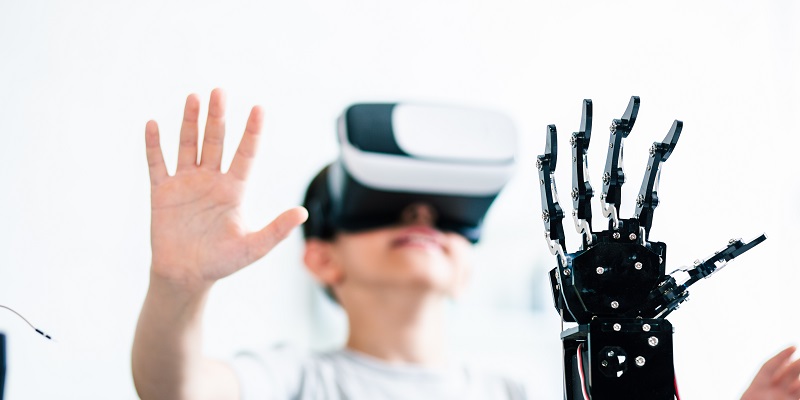In the field of robotics and prosthetics, the ability to accurately measure and sense the environment is crucial for effective interaction and task performance. Scientists at the Munich Institute of Robotics and Machine Intelligence (MIRMI) at the Technical University of Munich (TUM) have made a significant breakthrough in this area. They have developed an automated process for creating soft sensors, opening up new possibilities for advanced haptic sensing in artificial intelligence. This revolutionary development has the potential to bring about a paradigm shift in industries such as robotics, prosthetics, and human-machine interaction.
Universal Measurement Cells for Various Objects
The scientists have created universal measurement cells that can be attached to nearly any kind of object. This breakthrough allows for the seamless integration of soft sensors onto different surfaces, enabling a wide range of applications in fields like robotics and prosthetics. These universal measurement cells have the potential to revolutionize the way we interact with objects and machines.
Importance of Environment Detection and Sensing
Detecting and sensing the environment is fundamental to understanding how to effectively interact with it. This ability determines how humans and machines perform specific tasks. By developing soft sensors that mimic human sensorimotor skills, researchers aim to achieve a realistic emulation of these skills in prosthetics and robotics. The ultimate goal is to enable machines to interact with their surroundings in a manner similar to human hands.
Valuable Feedback from Measurement Sensors
The measurement sensors based on soft sensors have provided invaluable feedback on the interactions of robotic systems with their surroundings. For example, an artificial hand equipped with these sensors can accurately detect pressure and temperature variations when gripping objects. This level of feedback enhances the control and functionality of the robotic system, leading to smoother and more seamless interactions.
Soft, Skin-like Material for Wrapping Objects
The remarkable feature of this soft sensor technology lies in the use of a skin-like material that wraps around objects. This material is soft and flexible, closely resembling human skin. It enables the sensors to conform to the shape of the object, ensuring accurate and precise measurements. The use of this skin-like material is a breakthrough advancement in the field of soft sensor technology.
Automated Production Process for Skin
To streamline the production process, the research group has developed a framework that automates the creation of the sensor skin. The process involves a printer injecting conductive black paste into liquid silicone. As the silicone hardens, it encloses and encapsulates the paste, keeping it in a liquid state within the sensor. This automated process saves time and resources, making the production of soft sensors more efficient and accessible.
Printing and Enclosing Conductive Paste
The injection of the conductive black paste into the liquid silicone is a critical step in creating the soft sensor. This conductive paste allows the sensors to detect and measure various properties of the surrounding environment. By enclosing the paste within the liquid silicone, the sensors are protected and insulated, ensuring their durability and functionality over time.
The integration of soft, skin-like sensors in 3D objects opens up new possibilities for advanced haptic sensing in artificial intelligence. The ability to accurately measure and sense the environment in three dimensions enhances the interaction between machines and their surroundings. This development paves the way for more sophisticated and intuitive human-machine interfaces.
The development of this automated process for creating soft sensors has the potential to revolutionize various industries. In fields such as robotics and prosthetics, the integration of soft sensors into objects and machines can greatly enhance their functionality and performance. This advancement also enables the creation of wireless and customizable sensor technology. The ability to easily create soft sensors for arbitrary objects and machines opens up a myriad of possibilities for innovation and advancement.
The Munich Institute of Robotics and Machine Intelligence (MIRMI) at the Technical University of Munich (TUM) has made significant strides in the field of soft sensor technology. Their automated process for creating soft sensors, coupled with the integration of these sensors into 3D objects, holds immense potential for advancing robotics, prosthetics, and human-machine interaction. This breakthrough innovation brings us closer to emulating the sensorimotor skills of humans and reshaping the future of technology and automation. With further research and development, soft sensor technology could transform various industries and revolutionize the way we interact with machines and objects in our daily lives.

